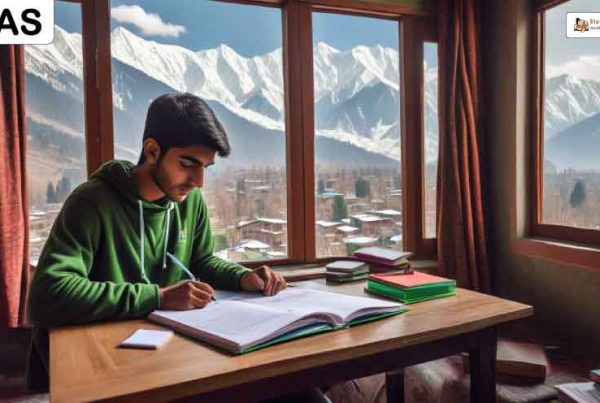How to Study International Organizations for UPSC Mains
International organizations play a pivotal role in shaping global policies, fostering cooperation, and addressing pressing global issues like security, health, and climate change. For aspirants preparing for UPSC Mains, understanding these organizations—such as the United Nations (UN), World Trade Organization (WTO), and International Monetary Fund (IMF)—is essential. This blog outlines a step-by-step guide to mastering International Organizations for UPSC Mains, including resources from Sleepy Classes and other reliable sources to ensure you get comprehensive coverage on the topic.
1. Understanding the Importance of International Organizations for UPSC Mains
The UPSC Mains exam tests aspirants on a range of topics in international relations, diplomacy, and global governance. Questions often focus on the functions, significance, and limitations of international organizations, as well as India’s relationship with these bodies. Hence, understanding International Organizations for UPSC Mains is essential for effectively answering such questions and framing them within India’s policy perspective.
2. Key Topics to Cover in International Organizations for UPSC Mains
When studying International Organizations for UPSC Mains, focus on:
- Founding and History: Understand when and why each organization was formed.
- Objectives and Functions: Know the primary goals, areas of influence, and operational strategies.
- Structure and Membership: Learn about member states, voting rights, and organizational structure.
- Role in Global Issues: Examine how these bodies address issues like peacekeeping, climate action, economic stability, and health crises.
- Relevance for India: Analyze how these organizations impact India’s foreign policy and domestic issues.
For a detailed breakdown, Sleepy Classes’ Political Science & International Relations for UPSC covers each organization thoroughly in a structured way.
3. Essential International Organizations to Study
To streamline your study, here are some of the key organizations to prioritize:
- United Nations (UN): Cover the General Assembly, Security Council, Economic and Social Council, and specialized agencies.
- World Trade Organization (WTO): Focus on trade policies, dispute resolution mechanisms, and India’s role in the WTO.
- World Bank and International Monetary Fund (IMF): Examine their roles in economic development, financial stability, and India’s borrowing history.
- World Health Organization (WHO): Consider its global health mandate, response to health crises, and India’s involvement.
- South Asian Association for Regional Cooperation (SAARC): Analyze SAARC’s role in regional cooperation and India’s challenges within it.
- BRICS, G20, and ASEAN: Cover these forums to understand India’s role in multilateral settings.
Additional resources on these organizations are available under Current Affairs for UPSC at Sleepy Classes, keeping you updated with recent developments.
4. Sources for Studying International Organizations for UPSC Mains
- NCERTs and Basic Books:
- Begin with NCERTs for foundational understanding. Class XII Political Science textbook covers organizations like the UN and WTO well.
- International Relations by Pavneet Singh provides an in-depth analysis of each major organization and India’s stance.
- Websites of International Organizations:
- Government and Ministry Reports:
- The Ministry of External Affairs (MEA) website (MEA.gov.in) offers insights on India’s diplomatic engagements.
- Annual reports from the Ministry of Commerce and Industry provide details on India’s participation in organizations like WTO.
- Yojana and Kurukshetra Magazines:
- These government-published magazines frequently feature articles on international organizations and their relevance to India. The latest issues can be accessed in the Yojana & Kurukshetra section on Sleepy Classes.
- Sleepy Classes Test Series and Study Material:
- Sleepy Classes’ UPSC Test Series includes mock questions on international organizations, with comprehensive answer explanations that will sharpen your answer-writing skills.
5. How to Organize Your Notes on International Organizations for UPSC Mains
Creating organized and concise notes is crucial for effective revision. Here’s a suggested note-making strategy for International Organizations for UPSC Mains:
- Divide Notes by Organization: Have dedicated sections for each organization.
- Highlight Key Facts: Record the founding year, headquarters, and major functions.
- India’s Role: Emphasize India’s involvement, challenges, and strategic importance.
- Recent Developments: Add bullet points on recent events or summits related to each organization. Refer to Current Affairs for UPSC on Sleepy Classes for up-to-date content.
6. Sample Question and Answer Framework
Question: “Discuss the role of the World Trade Organization (WTO) in global trade and analyze its relevance to India’s economic interests.”
Answer Outline:
- Introduction: Briefly explain the WTO’s role in promoting free and fair trade.
- Body:
- Global Role: Describe the WTO’s key functions—trade negotiations, dispute settlement, monitoring trade policies.
- Impact on India: Mention India’s concerns with agricultural subsidies, patent rights, and protectionism. Include India’s efforts to push for reforms.
- Conclusion: Conclude with the relevance of WTO in ensuring a balanced trade environment for India’s economy.
7. Practice and Review
To reinforce your understanding, practice writing answers and revising topics regularly. Mock tests and answer reviews on platforms like Sleepy Classes’ Test Series for UPSC are particularly helpful in fine-tuning your responses and understanding common question patterns.
8. Important Links and Resources
To aid your study, here are some recommended resources:
- General Studies for UPSC: Provides detailed study material covering international relations.
- Political Science & International Relations for UPSC: Ideal for PSIR optional students focusing on global organizations.
- Yojana & Kurukshetra: Government magazines that offer in-depth analyses of relevant international topics.
- UN.org: Official website for the latest updates on the UN and its agencies.
- WTO.org: For information on WTO policies, global trade data, and recent negotiations.
- IMF.org: Useful for understanding global financial assistance programs and India’s participation in IMF initiatives.
Conclusion
Mastering International Organizations for UPSC Mains is critical for anyone looking to understand the intricacies of global governance and India’s foreign policy. By using resources like NCERTs, official websites, government publications, and expert coaching materials such as those available on Sleepy Classes, you can build a strong foundation in this subject. Effective note-making, answer practice, and consistent revision will help you approach this topic confidently in the Mains exam, ensuring you are well-prepared to tackle questions on international organizations and their significance to India’s global standing.




